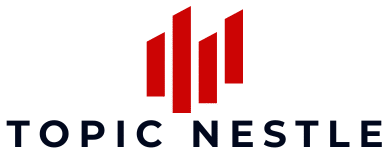Economics is the study of how individuals, businesses, governments, and societies allocate limited resources to satisfy unlimited needs and wants. At its core, economics helps explain how and why people make decisions, how markets function, and how economies grow or decline. From understanding inflation and unemployment to analyzing trade and government policy, economics plays a central role in shaping the world we live in.
The Basics of Economics
Economics is broadly divided into two branches:
-
Microeconomics – This branch focuses on individual units such as consumers, businesses, and markets. It studies how prices are set, how supply and demand interact, and how individuals and companies make decisions about spending, saving, and investing.
-
Macroeconomics – This examines the economy as a whole. It looks at national and global trends such as GDP (Gross Domestic Product), inflation, unemployment, interest rates, and fiscal and monetary policies.
Both branches work together to give a full picture of how an economy functions, both on a small and large scale.
Scarcity and Choice
A key concept in economics is scarcity. Resources such as land, labor, capital, and time are limited, but human wants are unlimited. Because of this, individuals and societies must make choices about how to use these scarce resources. Every choice involves an opportunity cost, meaning the value of what you give up to get something else.
For example, if a government decides to spend more on healthcare, it may have to reduce spending on education or defense. Economics provides tools to evaluate these trade-offs and make informed decisions.
Market Economy and Price Mechanism
In most modern economies, markets play a key role in allocating resources. A market economy is driven by the forces of supply and demand. Prices act as signals—when demand increases, prices rise, encouraging producers to supply more. When supply exceeds demand, prices fall, signaling producers to cut back.
The price mechanism helps coordinate economic activity and allocate resources efficiently without the need for centralized planning. However, markets are not perfect and sometimes fail, leading to issues such as monopolies, pollution, or inequality. In such cases, government intervention may be needed.
Economic Systems
Different countries use different economic systems to manage their resources:
-
Capitalism: In a capitalist system, private individuals own most resources and businesses. Markets determine prices, production, and consumption.
-
Socialism: In socialist economies, the government owns key industries and plans much of the economic activity. The goal is to reduce inequality and ensure that basic needs are met.
-
Mixed Economy: Most countries today use a mixed system, blending elements of both capitalism and socialism. Governments regulate markets to some extent but still allow private ownership and entrepreneurship.
Economic Indicators
To assess the health of an economy, economists use various indicators:
-
GDP (Gross Domestic Product): Measures the total value of goods and services produced in a country. A growing GDP indicates a healthy economy.
-
Inflation: Refers to the rate at which prices for goods and services rise. Moderate inflation is normal, but high inflation can reduce purchasing power.
-
Unemployment Rate: Measures the percentage of people who are willing to work but cannot find jobs. High unemployment indicates economic distress.
-
Interest Rates: Set by central banks, interest rates influence borrowing, spending, and investment. Lower rates encourage borrowing; higher rates reduce inflation.
The Role of Government in Economics
Governments play a crucial role in managing the economy through fiscal policy (taxing and spending) and monetary policy (controlling money supply and interest rates). During economic downturns, governments may increase spending or cut taxes to stimulate demand. In times of high inflation, they may reduce spending or raise interest rates to cool down the economy.
Governments also regulate markets to protect consumers, workers, and the environment. They may provide public goods like roads, education, and healthcare, which the private sector may not deliver efficiently.
Global Economics and Trade
In today’s interconnected world, no economy operates in isolation. Globalization has led to increased trade, investment, and movement of people and ideas. Countries export goods they produce efficiently and import those that are cheaper or unavailable domestically.
International organizations such as the World Trade Organization (WTO), International Monetary Fund (IMF), and World Bank help manage global economic relations. However, globalization has also led to challenges such as job displacement, environmental degradation, and trade imbalances.
The Future of Economics
Economics continues to evolve to address emerging issues. Topics like climate change, digital currency, automation, income inequality, and sustainable development are now central to economic debates. Behavioral economics, which incorporates psychology into economic decision-making, is also gaining traction.
In the coming years, economists will play a vital role in shaping policies that ensure inclusive growth, economic stability, and long-term sustainability.
Conclusion
Economics is not just about money or markets—it’s about people, choices, and the future. Understanding economics helps individuals make better decisions, businesses become more efficient, and governments craft smarter policies. As the world becomes more complex, the insights offered by economics will remain essential in building a better, more balanced global society.


